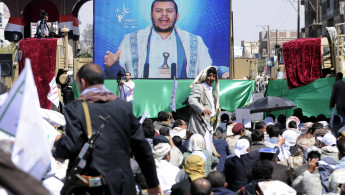Houthi leader slams Saudi regime for restricting access to Mecca during Eid
Yemeni rebel leader Abdelmalik al-Houthi has attacked Saudi Arabia for restricting access to Islam’s holiest sites during Eid al-Adha this year.
The comments were made during the leader's address on Houthi aligned news outlet al-Masirah, amid a shaky truce between the conflicting parties that expires at the end of July.
“The Saudi regime has turned pilgrimage into a nightmare of obstacles, and is limiting the number of our people who can attend every day” said al-Houthi, criticising the Riyadh regime for allegedly banning Muslims from making the pilgrimage for political reasons.
“These obstacles have been as bad as the coronavirus in stopping Muslims from visiting the holy sites,” he said in his speech.
“The extortionate costs of making pilgrimage are completely unjustifiable - an unbearable burden for pilgrims, unlike non-religious tourists who are welcomed to the country,” al-Houthi continued.
The Houthi leader then took aim at the forthcoming visit of US president Joe Biden to the kingdom, slamming the Saudi regime for welcoming “Jews and zionists” during Eid al-Adha instead of Muslims.
Over 800,000 pilgrims from outside Saudi Arabia made the pilgrimage this year, according to Saudi state media.
“Eid al-Adha is a time for revisiting the core tenets of Islam, to reestablish one’s moral standpoints and the willingness to sacrifice for the sake of God”, Abdelmalik al-Houthi concluded.
The Eid al-Adha festival is marked throughout the Muslim world, with families slaughtering livestock, eating, gathering with their loved ones and prayer.
However, much of the Muslim world is celebrating under hardships exacerbated by soaring inflation and food prices due to Russia’s invasion of Ukraine, prompting the former.
Eid al-Adha commemorates the Quranic story of the Prophet Abrahim’s readiness to sacrifice his son Ismail as an act of obedience to God. Before he could carry out the sacrifice, God provided a ram as an offering instead.
Saudi management of Mecca and Medina are a common point of contention for both the Houthi and Iranian regimes, who accuse the kingdom of using the Hajj pilgrimage for political leverage.





 Follow the Middle East's top stories in English at The New Arab on Google News
Follow the Middle East's top stories in English at The New Arab on Google News


